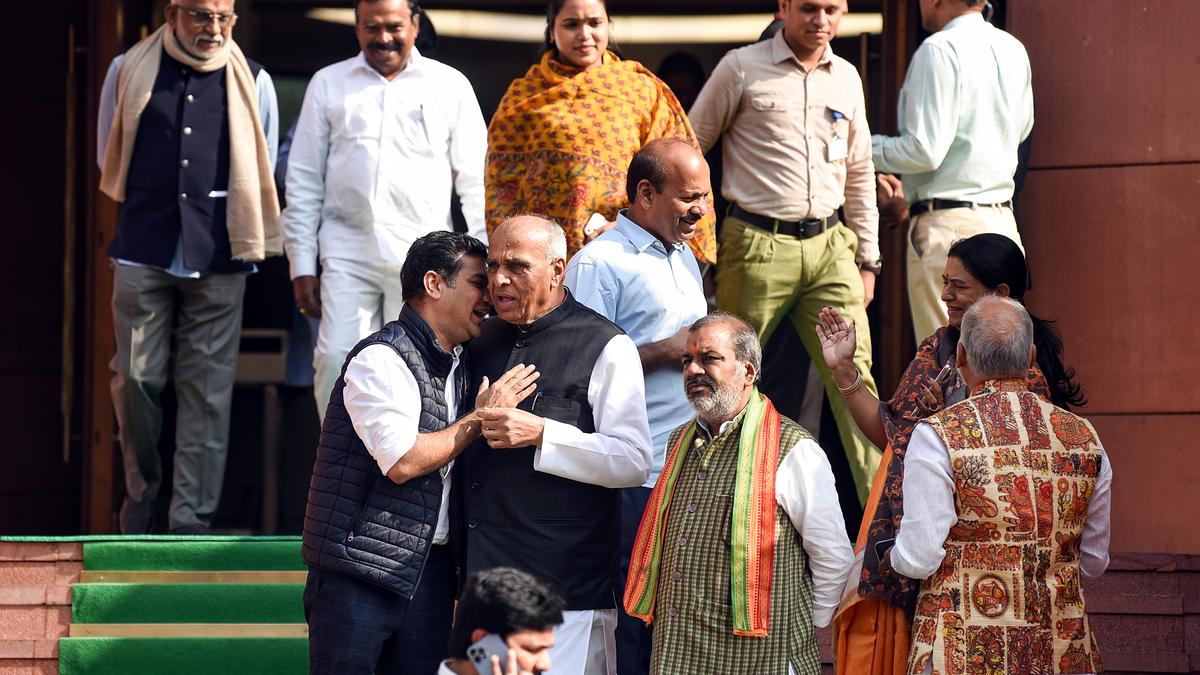
Joint Parliamentary panel on Waqf Bill gets Lok Sabha nod on extension
The Hindu
The term of the Joint Committee on the Waqf (Amendment) Bill was extended till the last day of the Budget session of Parliament in 2025 by Lok Sabha on November 28.
The term of the Joint Committee on the Waqf (Amendment) Bill was extended till the last day of the Budget session of Parliament in 2025, which is usually in February or March, by Lok Sabha on Thursday (November 28, 2024). Committee Chairman and BJP leader Jagdambika Pal moved the resolution in the Lower House, which approved it with a voice vote.
The parliamentary panel’s meetings have become a virtual battleground between the Opposition and the ruling party members, who have been vociferously debating the changes to the Waqf Bill proposed by the government.
Follow Parliament Winter Session Day 4 Updates here
On Wednesday, the Opposition members of the committee staged a walkout and slammed Mr. Pal for asserting that the panel’s draft report was ready. Mr. Pal and the BJP members of the committee then reached out to Opposition members and indicated their willingness to press for an extension of the committee’s deadline of November 29 to submit its report to the Lok Sabha.
“There is a consensus within the panel that we haven’t yet spoken to many of the stakeholders. For example, there are six States where there is a dispute between the Waqf [boards] and the State governments. Similarly, there are disputes over 123 properties, between the Waqf boards and the Union government,” Mr. Pal told reporters after the panel’s meeting on Wednesday.
The Lok Sabha had constituted the committee on August 8 and asked to submit its report on the last day of the first week of the Winter session, which is on Friday.
Opposition parties have stridently criticised the amendments proposed by the bill in the existing Waqf Act, alleging they violate the religious rights of Muslims. The ruling BJP has asserted that the amendments will bring transparency in the functioning of the waqf boards and make them accountable.

Every year, snakebites claim the lives of tens of thousands in India, and is one of the leading causes of accidental death in rural areas. Agricultural workers, tribal communities, and residents of remote villages bear the brunt of this crisis, which often leads to death, permanent disability, and lasting psychological trauma. In many ways, snakebite is the “poor man’s disease,” disproportionately affecting the country’s most vulnerable populations.










